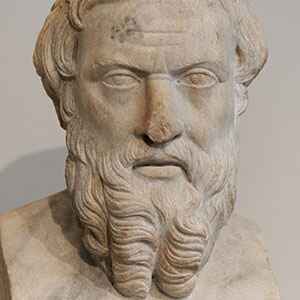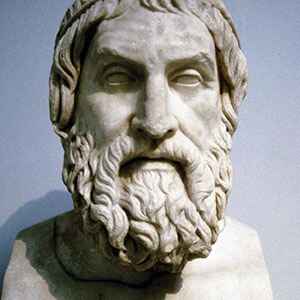The People of Ancient Greece
Ancient Greek civilization, spanning from around 800 BCE to 600 CE, left an enduring impact on Western culture and society. The Greeks excelled in diverse fields, such as philosophy, literature, art, politics, and science. Several key aspects define the ancient Greek people:
City-States (Polis): Ancient Greece was not a unified nation but a collection of independent city-states, known as polis. Examples include Athens, Sparta, Corinth, and Thebes. Each city-state operated with its own government, laws, and customs.
Government and Politics: Athens, recognized for its democratic government, pioneered a form of democracy allowing eligible citizens to participate in decision-making. On the other hand, Sparta, characterized by its militaristic society, had an oligarchic government focusing on military training and discipline.
Philosophers: Socrates, credited with laying the groundwork for Western philosophy, is renowned for the Socratic method of questioning and his influence on Plato. Plato, a student of Socrates, founded the Academy in Athens and explored various philosophical ideas. Aristotle, a student of Plato, made significant contributions to ethics, metaphysics, biology, and political theory.
Literature and Drama: Homer, traditionally attributed as the author of the epic poems the Iliad and the Odyssey, stands as a foundational figure in Greek literature. Playwrights like Sophocles, Euripides, and Aeschylus wrote tragedies, shaping the development of Greek drama.
Art and Architecture: The Parthenon, an iconic example of ancient Greek architecture on the Acropolis in Athens, is dedicated to the goddess Athena. Greek sculptors produced masterpieces like the Venus de Milo and the Discus Thrower, emphasizing naturalism and idealized forms.
Science and Mathematics: Pythagoras, a mathematician and philosopher, is known for the Pythagorean theorem and contributions to geometry. Euclid, often called the "father of geometry," laid the foundation for the study of mathematics with his work "Elements."
Olympic Games: The ancient Greeks introduced the Olympic Games in Olympia as a means to honor the gods through athletic competitions.
Military: Spartan warriors, renowned for their discipline and prowess in battle, underwent rigorous training from a young age. The phalanx formation, a military tactic involving a tightly packed formation of soldiers with shields and spears, was widely employed by Greek armies.
These highlights offer a glimpse into the rich and diverse culture of the ancient Greeks, whose legacy continues to influence the modern world in various ways.
Philosophers & Thinkers
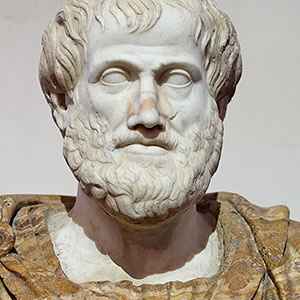
Aristotle
Aristotle was a Greek philosopher and polymath who made significant contributions to various fields, including philosophy, biology, ethics, and politics.
Discover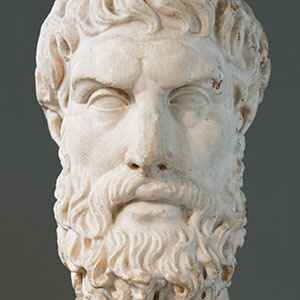
Epicurus
Epicurus, an eminent figure in ancient Greek philosophy, is renowned for founding the influential school of thought known as Epicureanism.
Discover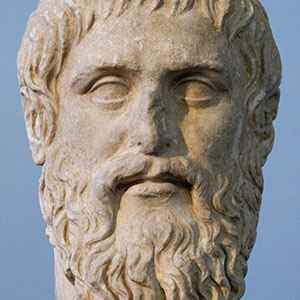
Plato
Plato was a philosopher in Classical Greece and the founder of the Academy in Athens, the first institution of higher learning in the Western world.
Discover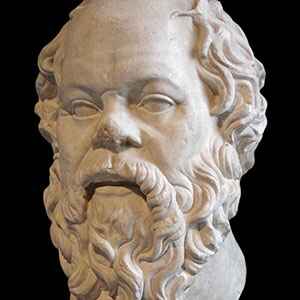
Socrates
Socrates was a Greek philosopher from Athens who is credited as the founder of Western philosophy and among the first moral philosophers.
Discover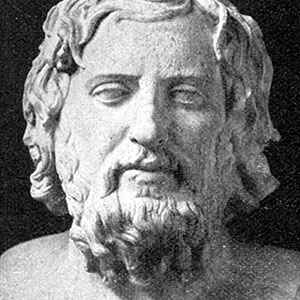
Xenophon wars/historians/
An ancient Greek historian, philosopher, and soldier. His works include historical and philosophical writings, providing insights into Greek history and culture.
DiscoverDramatists and Poets
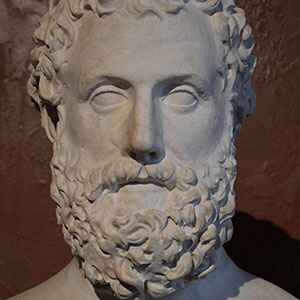
Aeschylus
An ancient Greek tragedian and one of the earliest playwrights of classical Athens, renowned for his insights into human nature.
Discover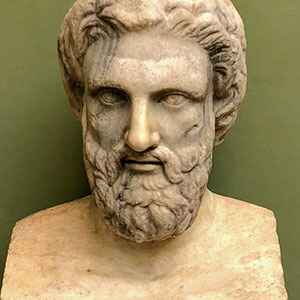
Aristophanes
Aristophanes was a comic playwright of ancient Athens known for his satirical and often political plays.
Discover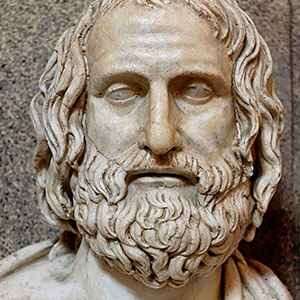
Euripides
Euripides was a tragedian of classical Athens, known for his plays that explore the human condition and morality.
Discover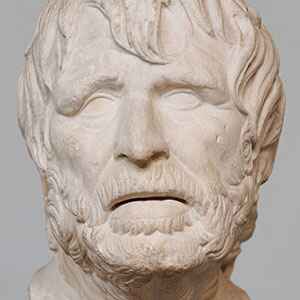
Hesiod
Hesiod, revered as one of the most influential poets of ancient Greece, left a lasting legacy with his timeless works.
Discover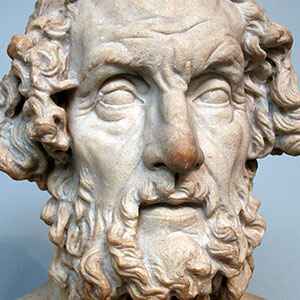
Homer
Homer was an ancient Greek poet traditionally said to be the author of the epic poems "Iliad" and "Odyssey."
Discover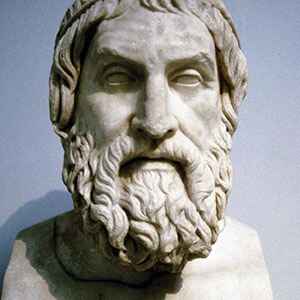
Sophocles
An ancient Greek dramatist and playwright, best known for his tragedies. He is one of the three ancient Greek tragedians.
DiscoverLeaders & Statesmen
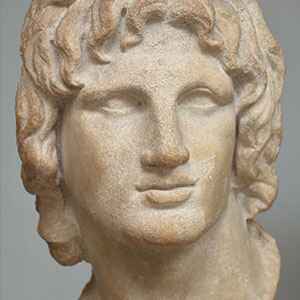
Alexander the Great
wars/generals/Alexander the Great was a king of Macedon and one of the most successful military commanders in history.
Discover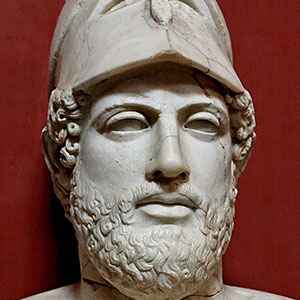
Pericles
wars/generals/Pericles was a prominent and influential statesman, orator, and general of ancient Athens during its Golden Age.
Discover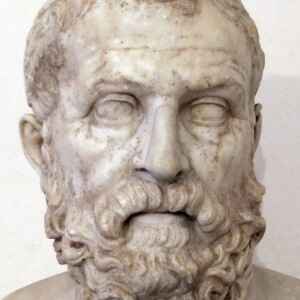
Solon
Solon was an ancient Athenian statesman, lawmaker, and poet. He is remembered for his significant reforms in Athens.
Discover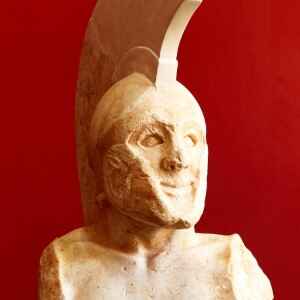
Leonidas I
wars/generals/Leonidas I was a warrior king of the Greek city-state of Sparta, best known for his leadership during the Battle of Thermopylae.
DiscoverHistorians & Chroniclers
Innovators and Artists
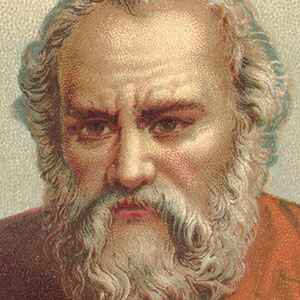
Archimedes
A Greek mathematician, physicist, engineer, inventor, and astronomer known for his contributions to mathematics and science.
Discover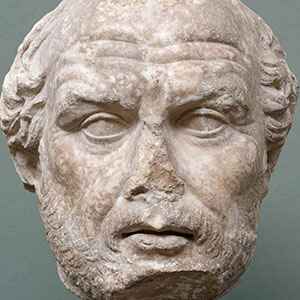
Phidias
Phidias was an ancient Greek sculptor, painter, and architect, famous for his work on the Parthenon in Athens.
Discover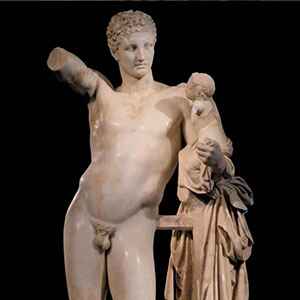
Praxiteles
Praxiteles was an ancient Greek sculptor known for his depictions of the human form, particularly his statues of the god Eros.
DiscoverFurther Reading
Art &
Architecture
Ancient Greek art and architecture, with its harmonious proportions and timeless elegance, continue to inspire awe and admiration millennia later.
Discover
Greek Mythology & Mythical Characters
Greek mythology, a rich tapestry of gods, heroes, and mythical creatures, captivates the imagination with its tales of love, betrayal, and epic adventures that delve into the depths of the human psyche.
Discover
Ancient Greek History
Ancient Greek history, marked by remarkable achievements in democracy, philosophy, and warfare, shaped the foundation of Western civilization, leaving an indelible legacy of innovation and cultural influence that continues to resonate to this day.
Discover
Ancient Greek Olympics
The ancient Greek Olympics, held in Olympia every four years, celebrated athleticism, unity, and cultural pride, serving as a testament to the enduring spirit of competition and excellence that transcends time and borders.
Discover
Ancient Greek Wars
Ancient Greek wars, such as the Persian Wars and the Peloponnesian War, were pivotal conflicts that shaped the course of history, highlighting the struggle for power, independence, and the clash of civilizations in the ancient Mediterranean world.
Discover
Ancient Greek Culture and Society
Ancient Greek culture and society, characterized by its emphasis on art, philosophy, and civic engagement, fostered a vibrant intellectual and social landscape where innovation flourished, democracy thrived, and the pursuit of knowledge and excellence was celebrated as fundamental values of civilized life.
Discover
